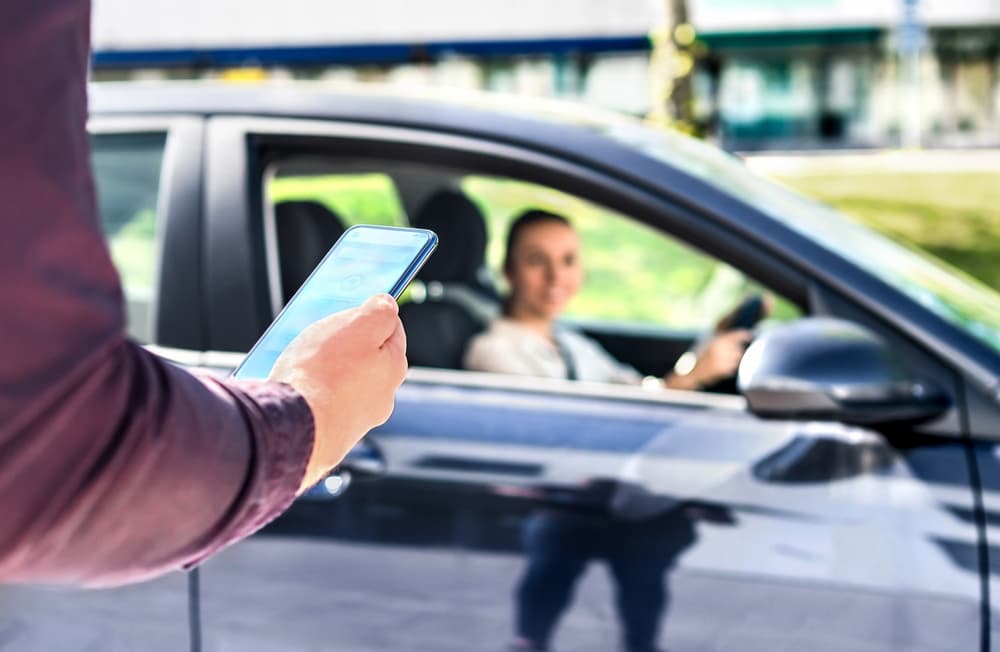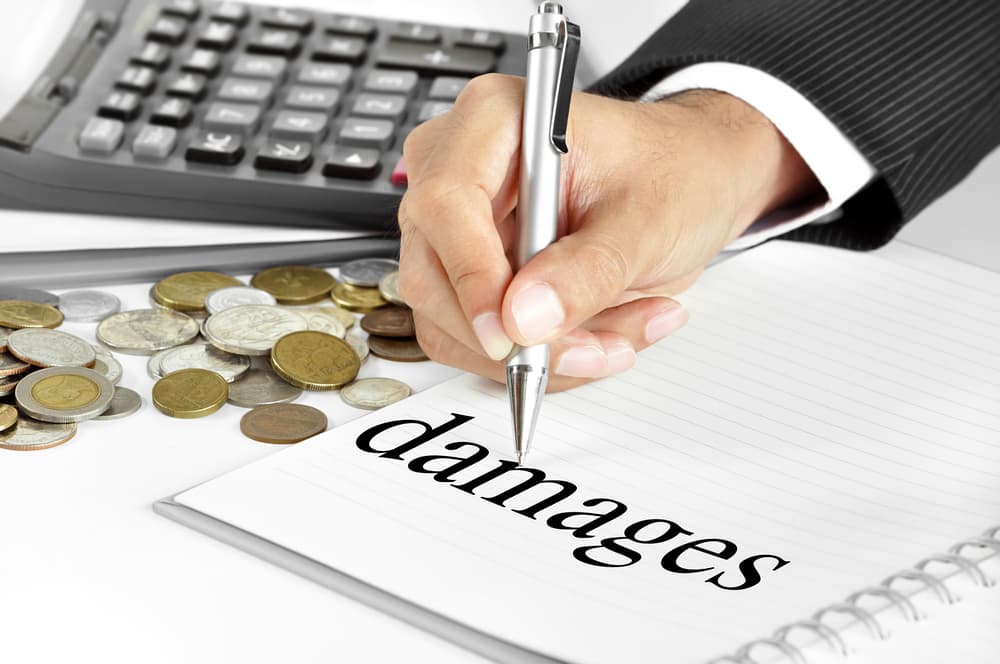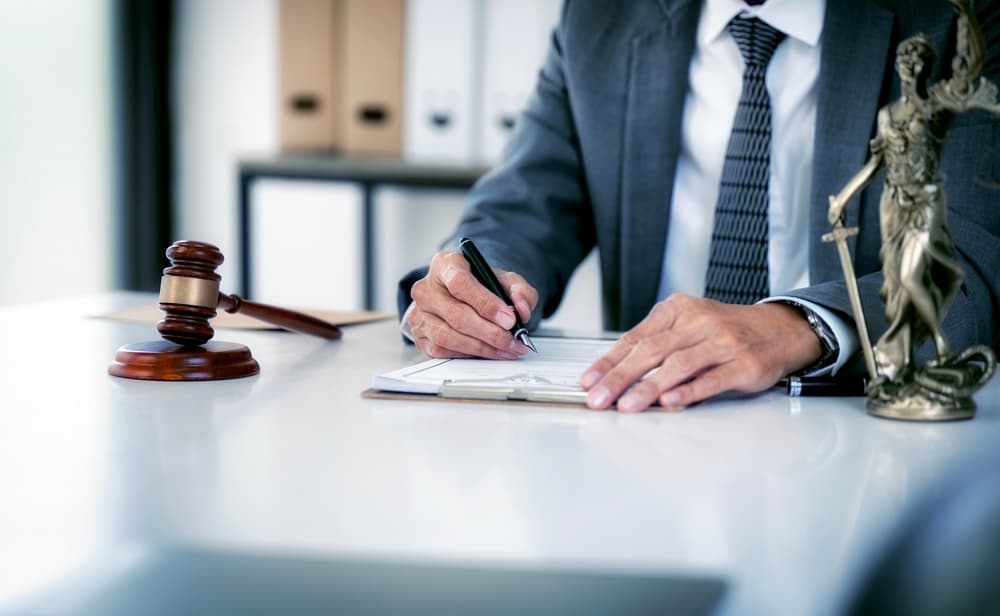You followed the rules and hailed a ride, but now you may face injuries and uncertainty. When an accident derails your life, knowing the compensation you may recover after a rideshare accident offers a path forward.
A rideshare accident doesn't just happen on a street; it happens to a person. A Chicago rideshare accident attorney can help you pursue financial support that covers your medical bills, lost income, and the personal suffering you’ve endured.
Understanding the Types of Available Compensation After a Rideshare Wreck

After a crash involving an Uber or Lyft, the law allows you to seek payment for your losses if someone was acting negligently. These payments are called damages. They’re separated into different categories based on the nature of your loss.
You have a right to seek compensation that covers every way the accident has affected your life. This includes both the bills you see piling up and the personal struggles that don't come with a price tag. A successful rideshare accident claim accounts for all of these damages.
Economic Damages: The Tangible Costs of a Rideshare Collision
Economic damages cover all the financial losses you experience due to the accident. These are the measurable costs that result from your injuries. They represent the money you've lost or spent because of someone else's negligence.
Think of these damages as a direct reimbursement for your expenses. You document these losses with receipts, invoices, and pay stubs. Keeping detailed records of every cost is key to building a strong claim for a settlement.
- Medical Treatment: This covers the full cost of your care, from the initial ambulance ride to any future medical needs, including hospital stays, surgeries, doctor's appointments, prescription medications, physical therapy, and medical devices like crutches or a wheelchair.
- Lost Income: If your injuries prevent you from working, you have a right to seek compensation for those lost wages, even if you used paid time off or sick days. Additionally, if the injuries affect your ability to earn money in the future, you may pursue compensation for your loss of earning capacity.
- Other Out-of-Pocket Expenses: This payment covers other costs such as transportation to doctor's appointments if you cannot drive, and modifications to your home or vehicle to accommodate a long-term injury.
Non-Economic Damages: The Personal Impact
Non-economic damages address the non-financial toll the accident takes on your life. These losses are personal and unique to you. They compensate you for the human cost of the accident, which is just as real as any medical bill.
Common examples include:
- Pain and Suffering: This covers the physical pain and discomfort experienced since the crash, including ongoing pain that may last for months or years.
- Emotional Distress: This compensation acknowledges the psychological impact of the accident, such as anxiety, depression, fear, or post-traumatic stress disorder (PTSD), and challenges like fear of driving or difficulty sleeping.
- Loss of Enjoyment of Life: This addresses the inability to participate in previously enjoyed hobbies or activities due to injuries.
Punitive Damages
In some rare cases, you may also pursue punitive damages. These aren’t meant to compensate you for a specific loss. Instead, they punish the at-fault party for extremely reckless or intentional behavior.
The goal of punitive damages is to deter similar conduct in the future. The standard for awarding these damages is very high in Illinois. It requires proving that the defendant acted with a conscious and blatant disregard for the safety of others.
Who Pays for Your Damages After a Chicago Rideshare Accident?

Determining the source of compensation after a Chicago rideshare accident isn’t always simple. Multiple parties and insurance policies may be involved. It often depends on the driver’s status at the time of the collision.
The insurance landscape for Uber and Lyft is different from that of a typical car accident. Rideshare companies provide large insurance policies, but they only apply in specific situations. Pin-pointing which policy covers your losses is a major step in securing a fair settlement for your injuries.
The Rideshare Driver’s Personal Insurance
If the rideshare driver wasn’t logged into the Uber or Lyft app at the time of the crash, then their personal car insurance is the primary source of coverage.
In this scenario, the accident is treated like any other crash between two private vehicles, and you file a claim against the at-fault driver's personal policy.
However, a complication often arises. Many personal auto insurance policies contain a business-use exclusion. This means the insurer refuses to cover accidents while the driver works. Driving for a rideshare company is almost always considered a business use.
This exclusion creates a potential insurance gap. If the driver was not yet logged in but was on their way to start their shift, their personal insurer might deny the claim.
Uber and Lyft’s Corporate Insurance Policies
When the driver is logged into the rideshare app, Uber and Lyft's corporate insurance policies come into play. The amount of coverage depends on the driver’s activity at the moment of the crash, and there are different coverage periods.
If the driver has the app on and is waiting for a ride request, a lower level of liability coverage applies. This policy covers injuries to others if the driver's personal insurance denies the claim. This often happens because of the business-use exclusion.
Once the driver accepts a ride request and is on the way to pick up a passenger, or if a passenger is in the car, a much larger insurance policy is active. This policy includes at least $1 million in liability coverage.
The $1 million policy covers damages to injured passengers and provides coverage for uninsured or underinsured motorists.
A Third Party’s Insurance
Sometimes, neither the rideshare driver nor their passenger is at fault. Another motorist on the road might cause the accident. For example, a driver might run a red light at an intersection in the Loop and T-bone the Uber you are riding in.
In these situations, the at-fault third-party driver is responsible for your damages. You file a claim against that driver’s auto insurance policy. The process is similar to a standard car accident claim.
The situation gets more complex if the at-fault driver is uninsured or lacks insurance to cover all your losses. In that case, you may file a claim under the rideshare company's Uninsured/Underinsured motorist (UM/UIM) coverage.
Factors That Influence the Compensation You Can Recover After a Rideshare Accident
No two rideshare accident cases are the same. The amount of compensation you may recover varies widely.
Several key factors influence the final value of your settlement, including:
- Severity of Your Injuries: The extent and seriousness of your physical injuries are the most significant factor. Catastrophic injuries that lead to long-term disability, such as spinal cord or traumatic brain injuries, result in much higher settlement values than minor soft tissue injuries.
- Total Economic Losses: A precise calculation of all your financial damages is fundamental. This includes all past and future medical expenses, lost wages, and loss of earning capacity. The more substantial your documented financial losses, the higher the potential settlement.
- The Strength of the Evidence: The evidence collected to prove fault and document your damages directly impacts your case's value. Substantial evidence, such as police reports, witness statements, traffic camera footage, and expert testimony, strengthens your negotiating position with the insurance company.
How a Lawyer Helps With Your Rideshare Accident Claim

Pursuing compensation on your own adds stress to your recovery. An attorney handles the entire legal process from start to finish. They protect your rights and fight for the best possible outcome for your case.
Investigating the Accident
Your lawyer conducts a thorough investigation into the crash. They gather all the necessary evidence to build a powerful claim. This includes obtaining the police report, interviewing witnesses, and collecting photos or videos of the accident scene and vehicle damage.
Calculating the Full Value of Your Claim
Determining what compensation you may recover after a rideshare accident is a detailed process. An attorney works to calculate the full extent of your damages, not just the immediate bills.
Your lawyer may consult with medical specialists to understand your future healthcare needs or with financial experts to calculate your lost earning capacity.
Handling All Communication With Insurance Companies
Dealing with insurance adjusters is difficult since they’re trained to minimize the amount the company pays out. A lawyer takes over all communication with the insurance companies on your behalf. They handle the negotiations and protect you from tactics that devalue your claim.
- Filing All Necessary Paperwork: Your legal team prepares and files all the complex legal documents and insurance forms required for your claim. This prevents costly errors and ensures you meet all important deadlines, like the statute of limitations.
- Protecting You From Lowball Offers: Insurance adjusters often make quick, low settlement offers before you know the full extent of your injuries. Your attorney evaluates any offer and advises you on whether it's fair. They reject lowball offers and continue to fight for the compensation you deserve.
- Answering All Your Questions: The legal process is confusing. Your attorney is there to answer your questions and keep you informed about the progress of your case every step of the way.
Taking Your Case to Court if Necessary
Most personal injury cases settle out of court. However, if the insurance company refuses to make a fair offer, your attorney can file a lawsuit and represent you in court. Their willingness to go to trial often motivates the insurance company to negotiate in good faith.
FAQ for What Compensation You Can Recover After a Rideshare Accident
How Is Fault Determined in a Chicago Rideshare Crash?
Fault in a Chicago rideshare accident is determined by applying the principle of negligence. Investigators look at evidence like police reports, witness testimony, traffic laws, and any available video footage to figure out which party failed to act with reasonable care.
Illinois is a modified comparative negligence state, which means you may still recover damages as long as you’re not found to be more than 50% at fault for the accident. However, your percentage of blame reduces your payout.
What Compensation Can I Recover After a Rideshare Accident if the Driver Wasn’t Logged Into the App?
If a rideshare driver wasn’t logged into the Uber or Lyft app, the accident is generally treated like any other car crash. The driver’s personal auto insurance policy is the primary source of coverage. Injured parties file a claim for compensation against their policy.
A problem may arise if the driver's policy excludes business use, leading the insurer to deny the claim. Your lawyer can help you navigate all insurance avenues to find the appropriate policy to claim against.
What Kind of Evidence Is Needed for a Successful Rideshare Accident Claim?
A successful rideshare accident claim relies on robust evidence. Some of the most valuable pieces of evidence include:
- Official Police Report: This document provides a neutral account of the accident details.
- Medical Records: These records document the extent of your injuries, your treatment plan, and the costs of your care.
- Proof of Lost Income: Pay stubs and letters from your employer show the wages you lost because of the accident.
- Photos and Videos: Pictures of the accident scene, vehicle damage, and your injuries are powerful forms of evidence.
- Witness Information: Statements from anyone who saw the crash can help establish who was at fault.
How Long Do I Have To File a Rideshare Accident Lawsuit in Illinois?
In Illinois, the statute of limitations for personal injury cases, including rideshare accidents, is generally two years from the date of the accident. There are some exceptions, so discuss your case with an attorney as soon as possible.
Should I Accept the First Settlement Offer From the Insurance Company?
The first settlement offer from an insurance company is rarely fair. Insurance adjusters are trained to resolve claims for the lowest possible amount. They often make a quick initial offer, hoping that you'll accept it before you understand the full value of your claim.
A lawyer can help you maximize the compensation you can recover after a rideshare accident.
From Accident to Action
After a rideshare accident, you need a guide who knows the way and an advocate who fights for you at every turn. It’s time to move forward from a position of strength. Let LegalRideshare Injury Lawyers handle the fight for compensation.
We know how to hold rideshare companies and their insurance carriers accountable. Call LegalRideshare Injury Lawyers today at (312) 767-7950 for a free and confidential consultation about your case.